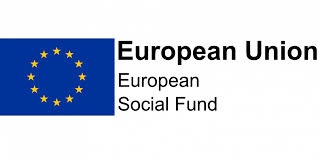Effective Change Management: Hannah Broom from ERF Electrical
Through the Priority Skills for D2N2 SMEs project, NTU is supporting employees of small and medium-sized enterprises (SMEs) to access free bespoke, employer-led training, career coaching and advice to up-skill in vocational and high-level technical skills.
By Joe Boultby-Ward | Published on 28 September 2021
Categories: Business; Nottingham Business School;


The extent, pace and scale of change that businesses need to manage has grown significantly in recent years. Particularly for SMEs, this can pose challenges around the resources, capacity or skills needed to manage change.
NTU’s new Effective Change Management course was piloted earlier in spring 2021, and has been designed to help senior professionals, managers and leaders within SMEs that are currently going through change to design, implement and lead this process effectively. We spoke to a participant in this pilot to see how they got on.
Hannah Broom, Head of Marketing at ERF Electrical
ERF Electrical are a wholesaler that sell electrical products and services to a customer base across industrial, commercial and domestic contractors, builders and retailers.
Their products are used across offices, universities, hospitals, and large government contracts.
Hannah’s role is to manage the marketing function at ERF Electrical, helping to drive awareness and generate leads for the business. She is also a member of the head team and plays a core part of driving the direction of the business.
ERF is currently going through a period of large-scale change, and after hearing about NTU’s Effective Change Management course through a marketing email, she decided to enrol in the hope that it would help her to better navigate some of the challenges that this entails, as well as to take up the opportunity for her own professional development.
Having since completed the course, Hannah felt that she is in a better position to understand the different factors that affect successful change and how to plan for it.
She says: “I think I can now manage change in a more productive and helpful way. The practical models and frameworks that I can use to help manage change more effectively were one of the best parts about the course. It was also really useful to take part in team sessions and hear about the experiences that others are going through.
“As a direct result of the course, I’m taking away a number of actionable frameworks which I can use in the future. I also feel I have better empathy for those involved in the change and hope this will allow me to be more effective as part of that process and have readdressed some of the ways I communicate with them.”
Sign up for a future change management course
We’re currently getting our Effective Change Management course ready to run from February 2022 onwards. You can find out more about our courses and register your interest on the NTU website.
If you have any questions, you can also contact us via any of the below channels:
- Email: ecm@ntu.ac.uk
- LinkedIn: SME Support at NTU
* The Priority Skills for D2N2 SMEs project is part-funded by the European Social Fund (ESF) and is part of the High Level Skills programme. The programme is delivered by NTU as part of the High Level Skills consortium which also includes Derby College and Nottingham College,.
Notes for Editors
For press enquiries, please contact Joe Boultby-Ward, Marketing Manager by email or on +44 (0)115 878 8899.
- The High Level Skills programme is part-funded by the European Social Fund (ESF) and is made up of two complementary projects – Priority Skills for D2N2 SMEs, and GRADS for D2N2.
- The projects have received £2,201,163 (Priority Skills for D2N2 SMEs) and £7,360,994 (GRADS for D2N2) of funding from the European Social Fund as part of the 2014-2020 European Structural and Investment Funds Growth Programme in England.
- The Department for Work and Pensions (and in London the intermediate body Greater London Authority) is the Managing Authority for the English European Social Fund programme.
- Established by the European Union, the European Social Fund helps local areas stimulate their economic development by investing in projects which will support skills development, employment and job creation, social inclusion and local community regenerations.
- For more information, visit https://www.gov.uk/european-growth-funding.